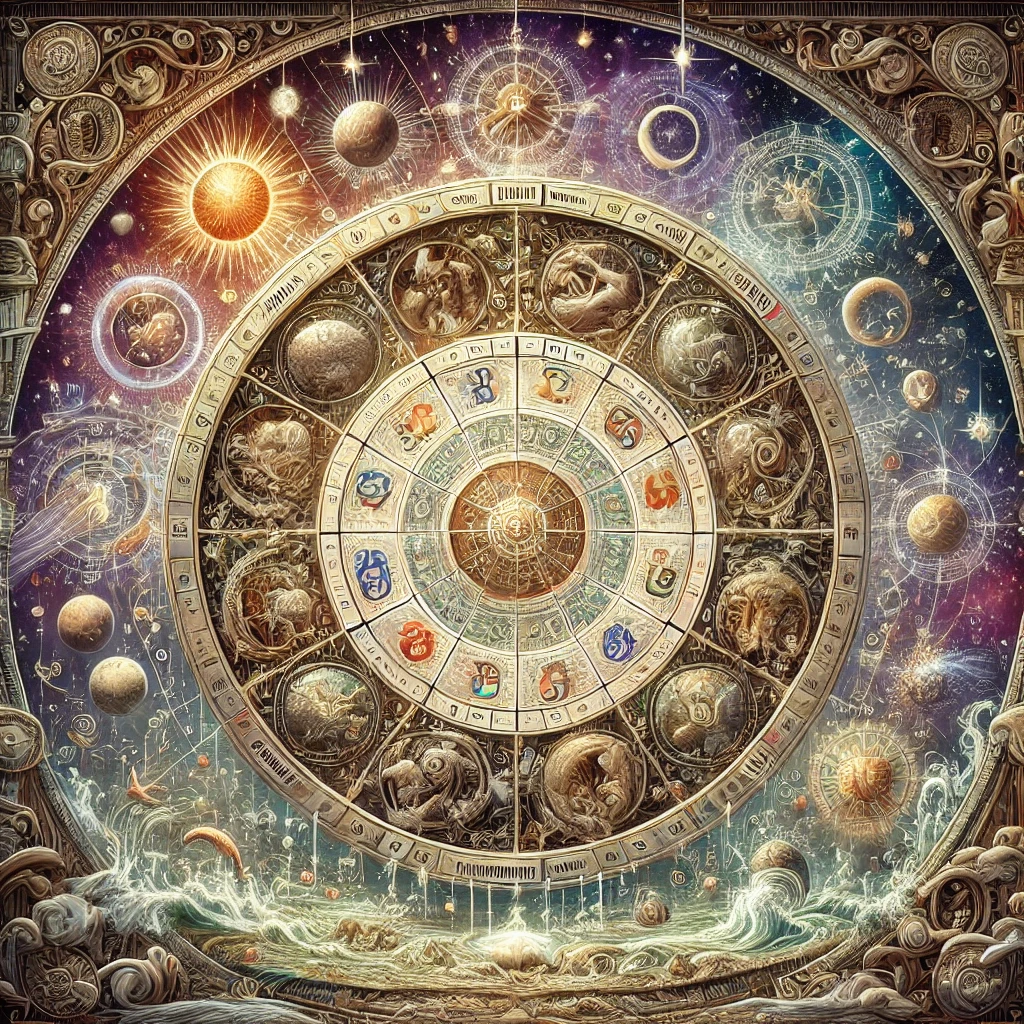Western Tropical Astrology is one of the most widely practiced forms of astrology in the world. It is based on the positions of the Sun, Moon, and planets in relation to the twelve zodiac signs, which are divided into twelve equal sections of the ecliptic, known as the tropical zodiac. This system is influenced by the seasons and focuses on the Sun’s position at the time of a person’s birth. The term “tropical” refers to the way the zodiac signs are aligned with the seasons, rather than the fixed stars, and is primarily used in Western astrological practices.
Key Components of Western Tropical Astrology
- The Twelve Zodiac Signs
The twelve signs in Western Tropical Astrology are as follows:- Aries (March 21 – April 19)
- Taurus (April 20 – May 20)
- Gemini (May 21 – June 20)
- Cancer (June 21 – July 22)
- Leo (July 23 – August 22)
- Virgo (August 23 – September 22)
- Libra (September 23 – October 22)
- Scorpio (October 23 – November 21)
- Sagittarius (November 22 – December 21)
- Capricorn (December 22 – January 19)
- Aquarius (January 20 – February 18)
- Pisces (February 19 – March 20)
- The Sun, Moon, and Ascendant
In Western Tropical Astrology, the three most important points in a birth chart are:- Sun Sign: Represents the core essence, ego, and identity of an individual. It is the sign the Sun was in at the time of birth and is the most commonly recognized sign in astrology.
- Moon Sign: Reflects the emotional self, inner world, and subconscious. It is determined by the Moon’s position in the zodiac at the time of birth and influences how individuals process emotions.
- Ascendant (Rising Sign): Represents the outward personality, appearance, and first impressions. It is the zodiac sign that was rising on the eastern horizon at the moment of birth and is associated with how a person presents themselves to the world.
- Planets in Astrology
Western Tropical Astrology also takes into account the positions of the planets in the birth chart, with each planet representing different aspects of life. These planets include:- Mercury: Communication, intellect, and reasoning
- Venus: Love, beauty, and relationships
- Mars: Action, energy, and desire
- Jupiter: Expansion, growth, and luck
- Saturn: Structure, discipline, and limitations
- Uranus: Innovation, change, and rebellion
- Neptune: Dreams, intuition, and spirituality
- Pluto: Transformation, power, and regeneration
- The Twelve Houses
In Western Tropical Astrology, the birth chart is divided into twelve houses, each corresponding to a specific area of life. These houses are based on the position of the Ascendant and can reveal insights about different aspects of an individual’s life, such as career, relationships, home, and personal growth. The twelve houses include:- First House (Self, Appearance)
- Second House (Finances, Values)
- Third House (Communication, Siblings)
- Fourth House (Home, Family)
- Fifth House (Creativity, Romance)
- Sixth House (Work, Health)
- Seventh House (Partnerships, Marriage)
- Eighth House (Transformation, Shared Resources)
- Ninth House (Higher Learning, Philosophy)
- Tenth House (Career, Reputation)
- Eleventh House (Friendships, Social Causes)
- Twelfth House (Subconscious, Hidden Aspects)
- Aspects
Aspects are the angles between planets in the birth chart, and they determine how planets interact with one another. Major aspects include:- Conjunction (0°): Planets are aligned and work together harmoniously.
- Square (90°): Tension between planets, leading to challenges or conflicts.
- Opposition (180°): Polarization, indicating the need to balance opposing energies.
- Trine (120°): Harmonious, flowing energy between planets.
- Sextile (60°): Opportunities for cooperation and growth between planets.
- Transits and Progressions
Transits refer to the movement of planets through the sky in relation to the positions of planets in a person’s natal chart. These transits are used to predict future events or trends in an individual’s life. Progressions, on the other hand, are a method of advancing the positions of the planets to provide insights into personal growth and development over time.
Applications of Western Tropical Astrology
- Self-Understanding and Personal Growth
One of the main uses of astrology is self-awareness. Understanding one’s Sun, Moon, and Ascendant signs, along with the positions of other planets, can provide valuable insights into personal strengths, weaknesses, and life purposes. - Relationship Compatibility
Astrological compatibility is often examined by comparing the birth charts of two individuals. By looking at how the planets align in each person’s chart, astrologers can assess how they might interact in relationships, highlighting areas of harmony and potential challenges. - Career and Life Purpose
Astrology can also shed light on career paths and life purpose. The position of the Sun and Midheaven (10th House) can indicate where someone might excel, while the Moon and other planets may reflect how they approach work, emotions, and family life. - Predictive Astrology
Astrologers also use the movement of the planets (transits) and progressions to predict important events, opportunities, or challenges in a person’s life. These predictions are often tied to significant astrological milestones like Saturn return or Jupiter transits.
Cultural Significance of Western Tropical Astrology
Western Tropical Astrology has had a long history, with roots dating back to ancient civilizations like the Babylonians and Greeks. It has been used in various ways across cultures, from guiding personal decisions to providing a framework for understanding the cosmos. In modern times, astrology has evolved and is often used as a tool for personal growth, self-discovery, and even entertainment, as horoscopes are published daily in newspapers, websites, and apps.
Famous Western Tropical Astrologers
- Ptolemy: Ancient Greek scholar who wrote the Tetrabiblos, one of the foundational texts of Western astrology.
- Linda Goodman: A modern astrologer known for her popular books on astrology, including Sun Signs and Love Signs.
- Stephen Arroyo: A contemporary astrologer who emphasizes the psychological aspects of astrology.
Further Exploration
- The Influence of Each Zodiac Sign on Personality
- Understanding the Role of Planets in Western Tropical Astrology
- Transits, Progressions, and Their Influence on Life Events
Western Tropical Astrology provides a valuable framework for understanding the self, relationships, and life’s potential challenges. By examining the positions of the planets at the time of birth, individuals can gain insights into their life’s path and the energies influencing their personality and future.

